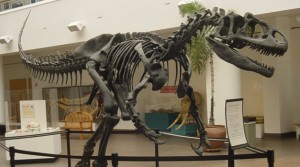
There are arguments for and against holding the Olympic Games in Madrid in 2020. During its four-day visit this week, a nine-member International Olympic Committee inspection team was regaled mostly with arguments for (though a Madrid Metro strike and an anti-Games demonstration helped make the case against).
The positive arguments are persuasive. The nearly €2.5 billion required to run the Games will be paid for entirely from ticket sales and sponsorship (with the cheapest tickets to be kept under €40). The €1.67 billion budgeted for additional operating costs and infrastructure will be divided among the central government, the Madrid region and the city, representing, as Madrid Mayor Ana Botella was keen to point out, less than €80 million annually for each entity over a seven-year period.
The infrastructure bill is – by Olympic Games standards – modest because Madrid has already built or refurbished sports venues as part of its unsuccessful bids to hold the 2012 and 2016 Games. The investment of public money would, according to projections, result in an estimated €5-billion injection into the Spanish economy at the time of the Games.
Although nationwide support for the Madrid bid has fallen slightly in the last year, from just over to just under 80 percent, it remains extremely high.
Among the arguments against is the reasonable assumption that cost projections will turn out to be conservative and white-elephant sports facilities will be added to the country’s already large and embarrassing inventory of redundant public works.
Perhaps most troubling is the spectacle of political leaders who have been implacable in their commitment to painful public-service cuts making light of potential Olympic expenditure.
Overall, though, the weight of argument would appear to rest with the pro camp. Historically, countries have pivoted on successful Games, moving from troubled periods into more promising territory – Italy in 1960 and Japan in 1964 spring to mind. It is surely not unrealistically optimistic to envisage a Madrid Olympics that marks full recovery from the economic difficulties that have afflicted the first part of the present decade.
Power pay
Bankers undoubtedly have an uncanny ability to stay positive in even the most trying of circumstances – that, at least, would appear to be the message behind the recent announcement by Santander Bank in the UK that 19 of its senior executives received compensation in 2012 in excess of £1 million despite a slight fall in the bank’s UK profits during the year.
Santander wasn’t alone in indulging its senior staff. Almost a hundred executives at the bailed-out Royal Bank of Scotland earned more than £1 million, while Barclays Bank put a whopping 428 employees in the million-plus club.
Ana Botín, head of Santander in the UK, took home £4 million. No surprise, then, that Ms Botín, daughter of Santander Group Chairman Emilio Botín, has just been named by BBC Radio Four’s Women’s Hour as the third most powerful woman in Britain, after Queen Elizabeth and Home Secretary Theresa May.
Cretaceous lessons
More information was made public this week regarding a remarkable trove of dinosaur eggs found in Coll de Nargo in the eastern foothills of the Pyrenees. The eggs date from the late Mesozoic Period, the Cretaceous era to be precise, which, as most readers will doubtless remember is when the dinosaurs became extinct.
Researchers have uncovered a large number of eggs of different dinosaur species in the same location, suggesting that the animals may have adopted a cooperative approach to looking after their young. The eggs include the megaloolithus variety, which, as readers will also know, were probably the largest creatures ever to walk the earth.
There could be significant local income in dinosaur eggs. The Jurassic Museum in Asturias, for example, founded with an initial investment of just €12 million in 2004, attracted more than a million visitors in its first six years of operation, bringing much needed investment and jobs to the region.
Undoubtedly lessons here for Olympic Games organisers – stress the cooperative nature of the undertaking and parlay investment into tangible community benefits.
And, of course, in view of what happened at the end of the Cretaceous era, lessons too, perhaps, for very large banks.
To read more by Anna Maria O’Donovan visit My Spanish Interlude.
Leave a Reply
You must be logged in to post a comment.